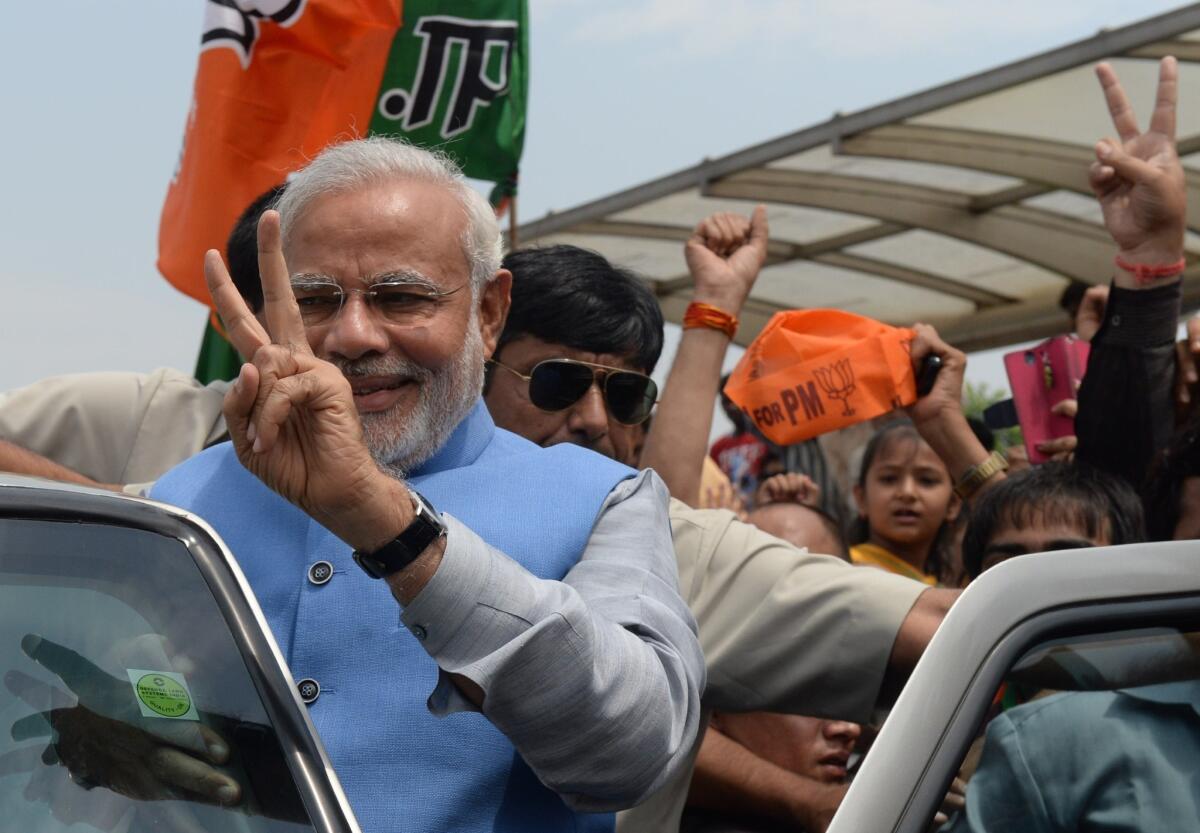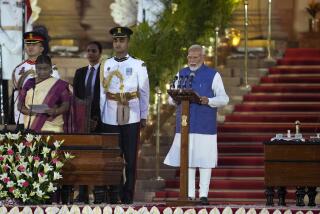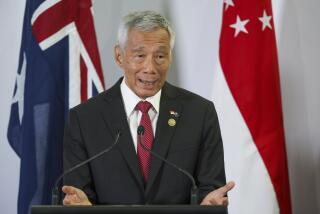India’s prime minister leaves office to make way for Narendra Modi

- Share via
reporting from Mumbai, India — As his party absorbed a crushing election defeat, Indian Prime Minister Manmohan Singh left office Saturday, ending a 10-year run that began with strong economic growth but collapsed amid corruption scandals and political paralysis that he was seen as too aloof to stop.
In a brief valedictory address, Singh said all Indians must respect the verdict of voters who drummed his Indian National Congress party out of power and handed a landslide victory to the opposition Bharatiya Janata Party in parliamentary election results announced Friday.
“In the last 10 years, we as a country have seen many successes and achievements that we should be proud of,” Singh said in stiff, formal remarks delivered from his office in New Delhi. “Today, India is a far stronger country in every respect than it was a decade ago.”
Singh, 81, turned in his resignation to India’s president, the head of state, a formality that paves the way for the BJP’s leader, Narendra Modi, to be named prime minister and appoint his Cabinet.
The Cambridge-educated Singh, a Sikh, was the first Indian prime minister from a minority community. As a respected economist and former finance minister, he presided over a doubling in size of India’s economy, implemented key market reforms including reducing gas subsidies, and improved relations with rival Pakistan, with whom India is enjoying one of its longest periods of peace.
He enjoyed good relations with the United States, especially President George W. Bush, with whom he cemented a landmark nuclear deal in 2008 that provided U.S. assistance to India’s civilian nuclear energy program. Bush, who recently unveiled a portrait he painted of the bespectacled Singh in his familiar blue turban, once described him as “a wise leader.” When President Obama took office, Singh was the first world leader he honored with a state dinner.
But the reserved, bookish prime minister fell from grace during his second five-year term when a series of major corruption scandals implicated top members of the Congress party and India’s economic growth rate, which had hovered around 10%, slipped below 5% last year.
Despite his reputation for personal probity, Singh was widely criticized for failing to confront corrupt party bosses and for seeming ineffectual and even inaccessible. In 10 years, he gave just three full press conferences.
A recent book by a former Congress official, Sanjaya Baru, portrayed Singh as painfully passive and abdicating real power to the party’s matriarch, Sonia Gandhi, the widow of former Prime Minister Rajiv Gandhi.
Yet supporters say that Singh will be remembered in future years as having restored calm to the nation following deadly Hindu-Muslim riots in 2002 in Gujarat, where Modi was serving as chief executive.
“During his term, he never lost sight of the constant need to heal the wounds and pursue reconciliation at home,” a former media adviser to Singh, Harish Khare, wrote last week in the weekly Outlook magazine.
In his farewell remarks, Singh wished the incoming government “every success.”
“I am confident about the future of India,” he said. “I firmly believe that the emergence of India as a major powerhouse of the evolving global economy is an idea whose time has come.”
More to Read
Sign up for Essential California
The most important California stories and recommendations in your inbox every morning.
You may occasionally receive promotional content from the Los Angeles Times.














